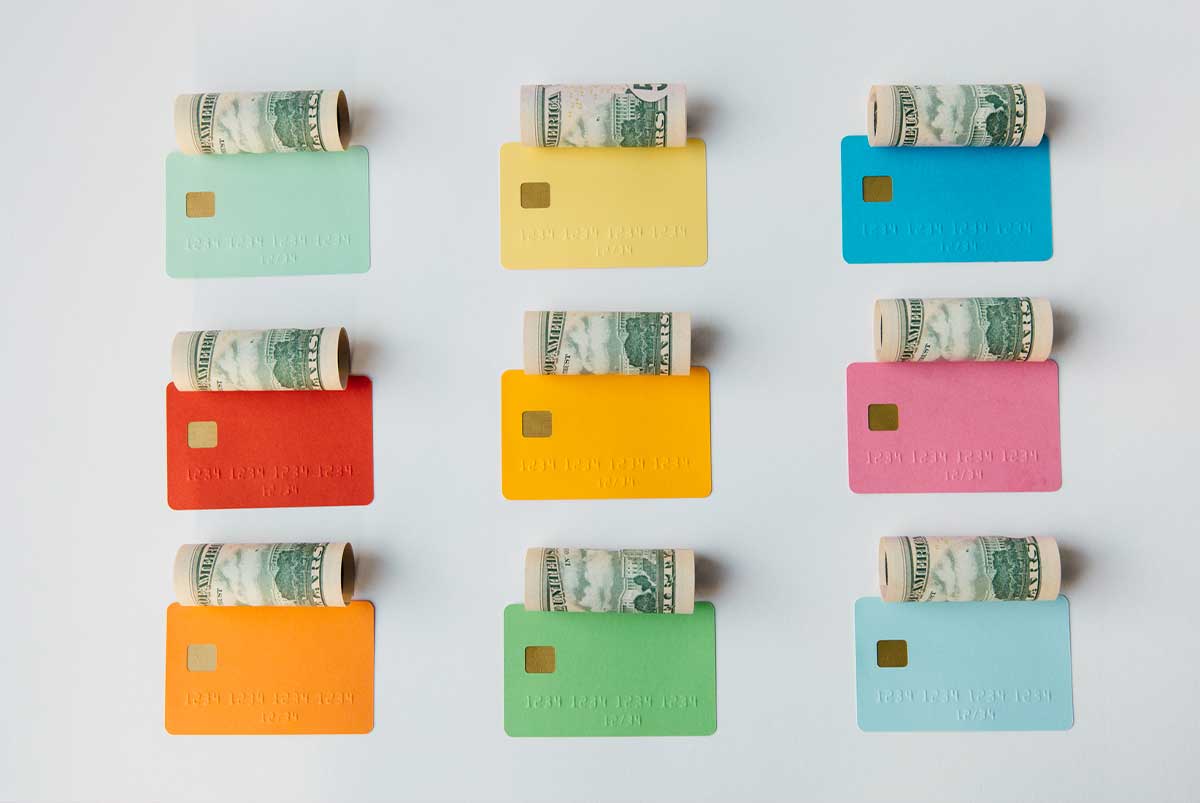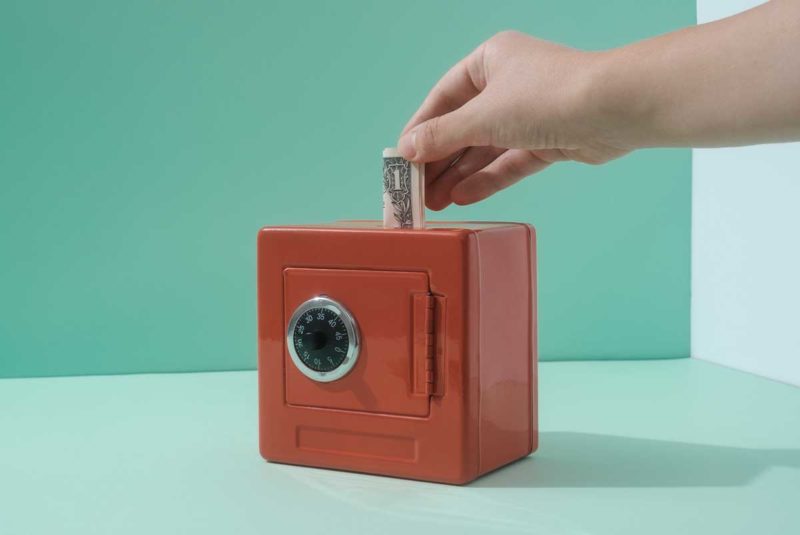You’re looking through your credit card statement when suddenly you see it: a fee you didn’t know was coming.
Don’t fret. It happens to the best of us. After all, fees and interest are the main ways credit card companies make their money.
But here’s what every savvy credit card user knows: Credit cards don’t have to cost anything. If you understand credit card fees – and how to avoid them – you won’t pay an extra cent for the rewards and convenience of plastic.
We’ll go over the various fees credit cards can charge and what you can do to steer clear of paying them. And you can decide whether paying the fees is worth what the card offers you.
How Much Does a Credit Card Cost?
Credit card issuers can charge any number of fees, but most of these fees can be avoided by using your credit cards responsibly. If you can avoid the fees, your credit card can actually be free.
Here’s a glance at several fees you’ll often see with credit cards:
- Interest fees: Charged when you carry all or part of your statement balance over to the next billing cycle.
- Annual fees: Charged yearly to use a card. These fees are usually accompanied by greater rewards and benefits, but it’s up to the individual whether these perks are worth the price.
- Balance transfer fees: Charged by the lender when you transfer a balance from one card to another.
- Cash advance fees: Charged when you withdraw cash via your card’s cash advance feature.
- Foreign transaction fees: Charged when you conduct a foreign transaction.
- Late payment fees: Charged when you fail to pay your minimum amount due by the due date.
- Returned payment fees: Charged when you unsuccessfully try to pay your credit card balance (typically due to insufficient funds).
- Over-the-limit fees: Charged when you exceed your credit limit (not common, you must opt in to a plan).
Interest Fees (Finance Charges)
- Interest is charged when you carry a balance on your credit card from one month to the next without paying the full statement balance.
- You’ll incur interest when you don’t pay your statement balance in full by the due date. This means you’ll owe interest even if you diligently make your minimum payment.
- Your interest fees are based on the annual percentage rate (APR) of your card.
- To mitigate risk against customers who may default, credit card companies generally give higher interest rates to riskier borrowers.
- Most credit card issuers make money from interest charges, since many users don’t pay in full each month.
- Interest can add up quickly – and could bury you in credit card debt.
How to avoid interest fees
Pay your entire statement balance by the billing cycle’s due date.
Of course, this advice only applies to purchases you charge to your card. If you use your card for balance transfers or cash advances, interest can start accruing immediately, with no grace period.
Annual Fees
- You’ll pay this fee for the privilege and perks of using certain credit cards.
- Many credit cards don’t charge an annual fee. For cards that do, it can range from around $30 for a basic card to over $600 for a rewards card with top-notch perks.
- Rewards cards with premium benefits, like airport lounge access or ample travel rewards, often have higher annual fees.
- Even with a hefty annual fee, a card can still be a good value and may actually save you money. You just need to calculate whether the benefits and rewards outweigh the cost of the card.
- Cards with annual fees may also charge an additional fee for each authorized user added to the account.
How to avoid annual fees
Select one of the many credit cards without an annual fee. Or if you’re coming up on your annual fee, call your credit card issuer and ask to have it waived. While they may not waive the fee, the issuer could offer you a retention offer, a statement credit or bonus reward to keep you as a customer.
Certain rewards credit cards also waive annual fees for the first year, and several major issuers waive annual fees for all active-duty military personnel.
Balance Transfer Fees
- A balance transfer is when you transfer debt from one card to another.
- Issuers usually charge a flat fee or percentage of the balance for this type of transaction. For example, your card may say it’s “$5 or 3% of the amount of each transfer, whichever is greater.”
- Some balance transfer cards will waive this fee if you transfer your balance within a promotional period.
- Balance transfer fees are separate from the finance charges you’ll incur if a transferred balance accrues interest.
How to avoid balance transfer fees
The simplest way to avoid balance transfer fees is to never transfer a balance to another credit card. However, if you want to transfer a balance, you might be able to find a card with no balance transfer fee, or a card that waives the fee under certain conditions.
You should compare the cost of any balance transfer to the amount of interest you’d pay if you didn’t transfer it. If you’re paying a high interest rate, it could save you money to transfer the balance to a card with a lower or 0% APR, even though you’ll pay a fee to move the debt.
Beware, though, the low rate on the new card might be a temporary, introductory rate.
Cash Advance Fees
- You’ll incur cash advance fees when you borrow cash from a credit card, either by using it at an ATM or using convenience checks issued to you by mail from your provider.
- A cash advance fee is usually the greater of a flat fee or percentage of what you borrow. For example, your card could say “$10 or 5% of the amount of each transaction, whichever is greater.”
How to avoid cash advance fees
While it may seem convenient to use cash advances. Borrowing cash from a credit card is often more expensive than its worth. Interest will start accruing on cash advances as soon as you take them out, adding even more to the total cost.
Cash advances should only be used for emergencies.
Foreign Transaction Fees
- Some cards charge a fee when you make a purchase in a foreign country or in a currency other than U.S. dollars. This is also known as a foreign currency exchange fee.
- Most credit card issuers charge around 3% of the purchase price.
- To appeal to the travelers they serve, many travel rewards cards don’t charge this fee.
How to avoid foreign transaction fees
Choose a card with no foreign transaction fees. Even if you don’t use it for everyday purchases, break it out when making purchases abroad or in a foreign currency.
There are also quite a few business cards with no foreign transaction fees. Using one could make a noticeable difference in how much a trip ultimately costs you.
Late Payment Fees
- Most credit card companies charge a late payment fee when you don’t make the minimum payment by your statement’s due date.
- Some banks waive the first late fee or don’t charge late fees at all.
- A late payment fee doesn’t necessarily mean a late payment will show up on your credit reports.
- If you continue to make late payments, your credit card issuer may charge an additional late fee each billing cycle when a payment is past due.
- Payments that are 60 days or more past due, may result in higher APR as a penalty for late payment.
The federal Credit CARD Act of 2009 put certain caps on the fees card issuers can charge for late payments. The Consumer Financial Protection Bureau, however, recently reviewed credit card late fees and increased the previous CARD Act caps to the following:
It’s also worth noting that your late fee can never exceed the size of your minimum payment.
How to avoid late payment fees
Make the minimum payment by your statement’s due date. If you miss a payment, call your credit card issuer and explain your mistake. If you don’t normally make late payments, the issuer may credit the fee back to your account.
To avoid making late payments, set up autopay and create calendar reminders to confirm those automatic payments were successful.
Over-the-Limit Fees
- Your card issuer may charge this fee if you make a purchase that results in a balance greater than your credit limit.
- Legally, the fee can’t be greater than the amount by which you went over.
- Unlike many fees, you must opt in to over-the-limit fees by telling your credit card issuer you want the ability to exceed your credit limit. If you don’t opt in, your issuer will simply deny any transactions that put you over the limit.
- Maxing out your credit cards or surpassing your credit limit will lead to a high revolving credit utilization ratio – and can seriously hurt your credit scores.
How to avoid over-the-limit fees
Sometimes, a card company will offer a feature that lets cardholders exceed their credit limit, but charge a fee if that happens. Don’t opt in to this feature. If, for some reason, you decide to opt in, don’t exceed your credit limit.
Returned Payment or Insufficient Funds Fees
- Most credit card issuers charge this fee when the bank returns your payment, usually due to insufficient funds.
- Returned payment fees are often $35 or so.
- Let’s say you make a $1,000 credit card payment from your checking account, which only has $800 in it. Your bank will reject the payment, and your credit card issuer may charge a returned payment fee.
How to avoid returned payment fees
To avoid returned payment fees, make sure you have enough money in your bank account to cover the payment. Don’t forget to account for upcoming bills you have on autopay – like your rent or utilities.. Finally, when making a payment, make sure to accurately enter your information, which can include both your card information and billing address.
In addition to incurring fees, returned payments may also result in the card issuer applying a high penalty APR to your account.
Subprime cards, targeted at people with poor credit, will charge additional fees on top of everything mentioned here. Setup fees, monthly fees and paper statement fees may be assessed, among others. We recommend avoiding these types of cards.
Do Credit Cards Have Hidden Fees?
Credit cards don’t have hidden fees, per se. Federal law requires credit card issuers to clearly outline associated fees in the card’s terms. You can usually see all of a card’s fees in what’s known as the Schumer box: an easy-to-read summary that’s found in your card/account terms.
But there are fees that aren’t often discussed, and may come as a surprise if you’re unfamiliar with credit cards or if you haven’t read your card’s terms.
These can include:
- Paper statement fees: Depending on the bank, you may be charged a fee to receive paper statements if you’d rather not receive them digitally.
- Account activation fees: They’re not common, but some credit cards charge a fee to open an account.
- Credit limit increase fees: Most issuers don’t charge anything to increase your credit limit, but some do.
- Expedited payment fees: If you need to make a payment quicker than usual, you might have to pay to have it expedited.
- Card replacement fees: If you lose your credit card, the issuer will typically send you a new one for free. But some issuers charge, and some may charge extra to send it quickly.
Know Your Fees
Each credit card has fees that cardholders should be aware of. But for the most part, they can be avoided by understanding how all your cards work and know the charges for various functions, and by making your monthly payments on time and in full.
The Short Version
- Credit card issuers can charge any number of fees, but most of these fees can be avoided by using your credit cards responsibly
- Some credit cards charge annual fees, but these fees are usually accompanied by amped-up rewards and benefits that are worth the price
- Federal law requires credit card issuers to clearly outline associated fees in their card terms
Consumer Financial Protection Bureau. “1026.52 Limitations on Fees.” Retrieved May 2022 from https://www.consumerfinance.gov/rules-policy/regulations/1026/52/




